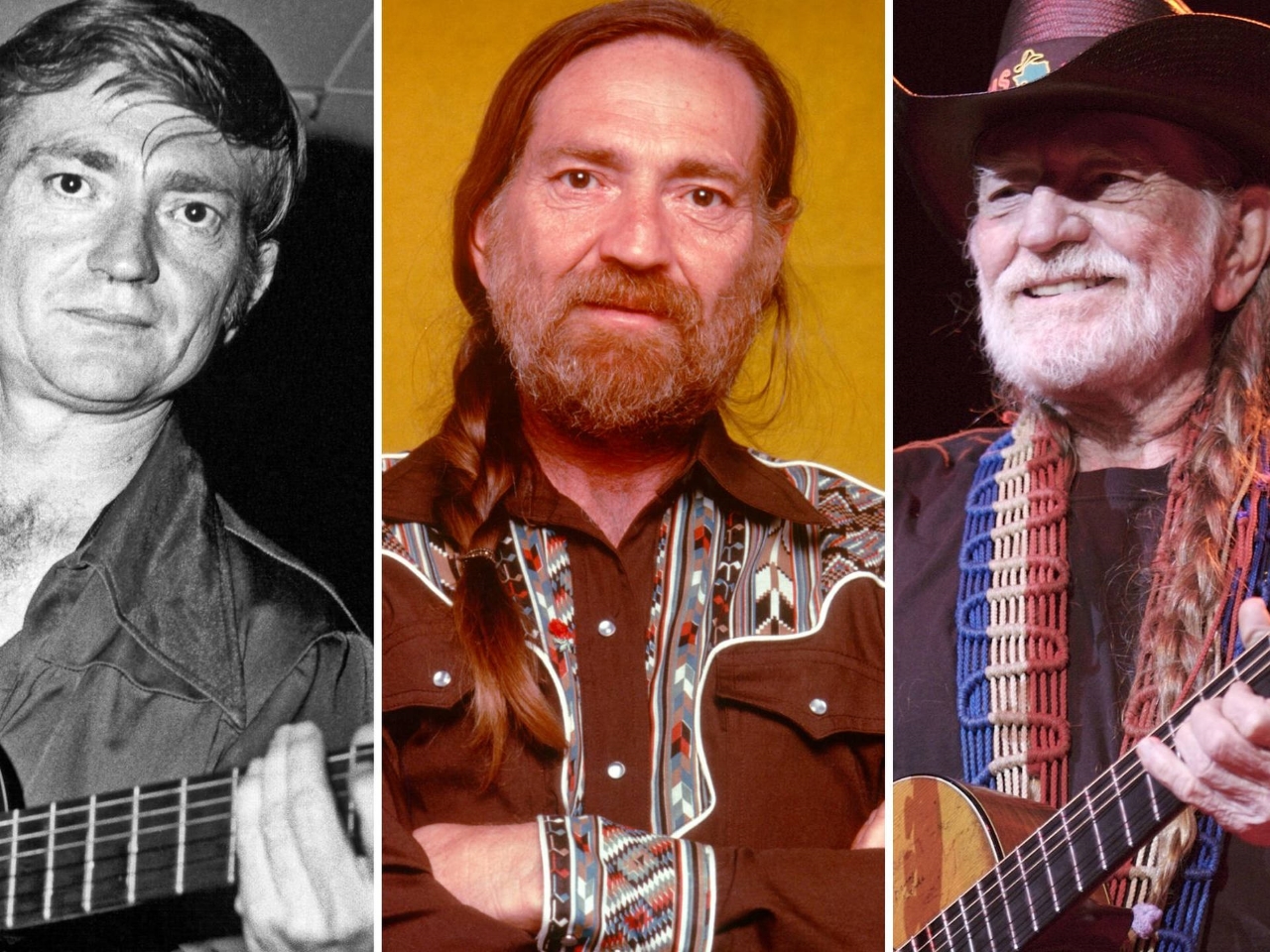🎶 An Outlaw with a Different Idea
By the mid-1970s, Willie Nelson was already a legend of outlaw country. With his scruffy beard, braids, and a rebel’s attitude, he had broken Nashville’s mold and carved out his own space. Albums like Red Headed Stranger proved that he could turn raw, stripped-down storytelling into gold. But then, in 1978, Willie made a move that no one saw coming. He announced he would record an album not of country originals, but of classic American pop standards—songs written decades earlier by Irving Berlin, Hoagy Carmichael, and Duke Ellington.
Nashville insiders thought it was madness. Why would an outlaw country star risk his credibility by singing old jazz and pop tunes? But Willie, true to his nature, didn’t care. “I sing songs I love,” he once said, “and I love these.”

🌹 The Birth of Stardust
Willie hired Booker T. Jones—yes, of Booker T. & the MG’s—to produce the sessions. They worked in a simple studio, using Willie’s road band instead of polished Nashville players. The result was Stardust, a gentle, soulful collection of ten timeless songs. From Blue Skies to All of Me to Georgia on My Mind, Willie’s warm, conversational voice wrapped around each lyric like a friend telling a story. He didn’t try to sound like Frank Sinatra or Nat King Cole. He sounded like Willie Nelson, and that made all the difference.
🌌 A Gamble Turned to Gold
When Columbia Records heard the finished album, they panicked. “This will kill his career,” some executives muttered. But Willie insisted on releasing it. To everyone’s surprise, Stardust became one of the best-selling albums of his career. It reached No. 1 on the country charts, stayed there for over 10 years, and eventually sold more than 5 million copies. Songs that had been written for nightclubs and Broadway stages now found new life in honky-tonks and living rooms across America.
🎤 “Georgia on My Mind”
One of the most powerful moments on the album was Willie’s rendition of Hoagy Carmichael’s Georgia on My Mind. While Ray Charles had immortalized the song decades earlier, Willie gave it a new intimacy. His version was tender, almost fragile, with each note carrying the ache of longing. It became a hit single, reaching No. 1 on the country charts in 1978 and winning a Grammy. For many, it was proof that Willie Nelson could take any song—no matter the genre—and make it his own.
🍷 Why Stardust Worked
The magic of Stardust lay in its honesty. Willie didn’t approach the American Songbook as a jazz singer or a pop crooner. He approached it like a storyteller. His phrasing was unique, often slightly behind the beat, giving each lyric a sense of thought and reflection. Listeners felt like Willie wasn’t just singing to them—he was confiding in them. In a decade full of disco, punk, and arena rock, Stardust felt like a quiet conversation under the stars.
🌍 Breaking Boundaries
With Stardust, Willie proved that country music didn’t have to be limited to fiddles and steel guitars. It could embrace the broader American musical heritage. Suddenly, country fans were listening to Irving Berlin, and pop fans were buying a Willie Nelson record. The album blurred genres, bridged generations, and showed that good songs never go out of style.
💫 Critical Praise and Cultural Impact
Critics who had doubted Willie’s gamble ended up hailing Stardust as a masterpiece. Rolling Stone praised its warmth and simplicity. The New York Times marveled at how Willie’s voice could make standards feel brand new. Beyond the reviews, the album had cultural weight. It played at weddings, barbecues, road trips, and quiet nights at home. For millions of listeners, it was the soundtrack of memory and love.
🌟 A Legacy Written in the Stars
Decades later, Stardust remains one of Willie Nelson’s defining works. It has been reissued multiple times, and its songs still appear in his live sets. Younger generations continue to discover it, often surprised that a “country outlaw” could deliver such tenderness. In many ways, Stardust was Willie’s declaration of artistic freedom: he would not be confined to one style, one audience, or one identity. He could be both outlaw and balladeer, rebel and romantic.
📖 Conclusion
Stardust was more than an album—it was a love letter. A love letter to the songs that shaped American culture, to the audiences who trusted Willie enough to follow him into new territory, and to the idea that music has no borders. Willie Nelson took a risk and ended up creating one of the most enduring records of all time. It taught us that the greatest rebellion isn’t just breaking rules—it’s following your heart.